Betti Ono pt. 2: Amplifying Black Voices in Oakland’s Cultural Ecosystem
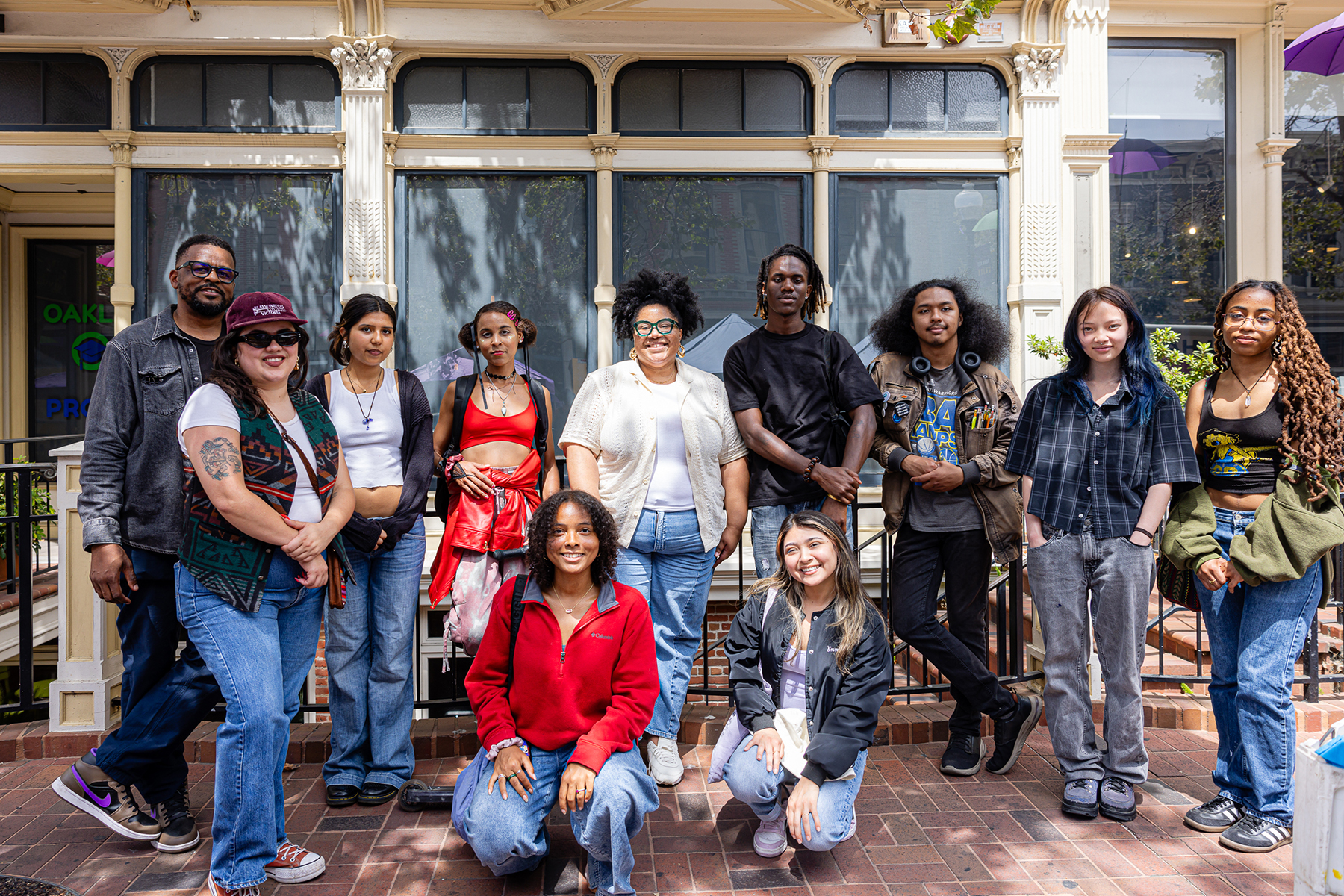
Members of the Betti Ono Team with the 2024 Arts and Civic Engagement (ACE) Fellows during their Not One More Girl Day of Activation, photo by Bethanie Hines
Developed in partnership between CAST & PJS Consultants
Interviews & content drafted by artist/writer dana e. fitchett with editing by CAST
This is part 6 of a 6-part blog series where we’ve spent time hearing from our partners in Oakland: Black Cultural Zone, Oakstop, and Betti Ono Foundation. Read why we’re highlighting these three Black Oakland natives and their remarkable work here.
This week, we’re sharing more background and context for our work with the Betti Ono Foundation and its Founder and CEO, Anyka Howard.
The Conundrum: Black Culture as a Driver of Tourism and Economic Growth Amidst Persistent Anti-Blackness
While reflecting on her work in the community, Anyka points to the power of the Black cultural ecosystem of Oakland as a draw for folks from all over the world and laments over the fact that, despite these powerful contributions, Black cultural workers continue to experience underinvestment and lack of access to opportunities and resources. These dynamics fail to honor the influence of the work Black arts and culture organizations do, including their positive contributions to the overall economic vitality of the Town and the entire Bay Area. “As a Black woman,” Anyka says, “I fought to get a long-term lease from the city the whole time we were in the downtown space, and because the people in positions of power didn’t believe a Black woman-run cultural space belonged on the frontline of Broadway, there was a criteria that was both inequitable and discriminatory.”
In addition to encountering anti-Black systemic barriers personally, Anyka sees a trend that extends beyond her experience. “I’m seeing a pattern in terms of who’s getting access to deals and spaces,” she shares.
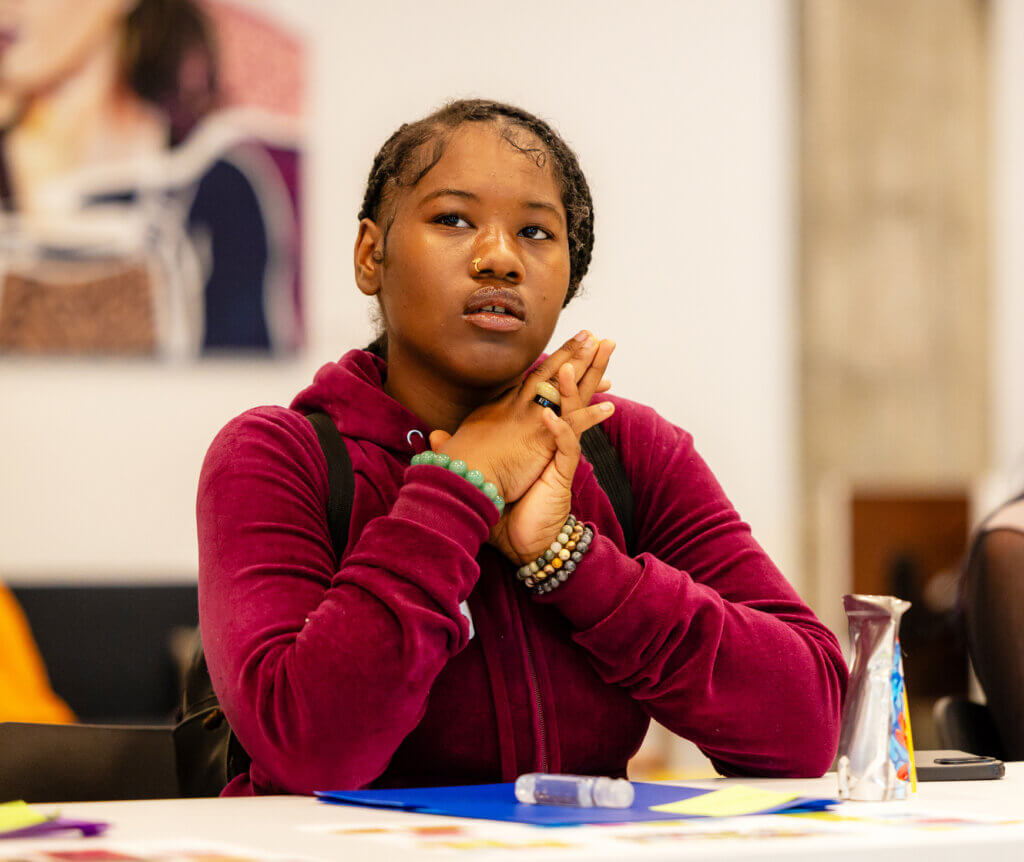
“I want to see more Black women getting access. I want the portion and percentage to quadruple, and I want there to be transparency around how difficult it is to access the resources that we need to carry out a vision like this, and the perceptions that say, ‘You’re not qualified. You don’t have the right pieces in place.’”
“To exist and deliver on our organizational mission,” Anyka explains, “necessitates certain actions. We have to have a very strong network of advocates, cultural workers, and residents—everyday people who can see and understand and are offered information to build their capacity and knowledge around the cultural needs of our community, and how to protect our cultural assets and our right to civic space to practice our cultural work.” Emphasizing economic value-add is one tactic that Anyka promotes in order to gain more collective interest and investment in Black cultural workers and their initiatives. “Our ability to do our work is deeply connected to things like housing, jobs, transit, and economic opportunity,” she says. “Advocacy and organizing has to continue to be built and strengthened generation to generation because we’re going to consistently have to fight for things. The City of Oakland’s cultural affairs budget keeps getting cut every two years, and then we fight for it to come back.” A deeper look at the contributions of Black cultural work to economic vitality is overdue.
“We need to make clear the connection between creative power and economic vitality,” Anyka says.
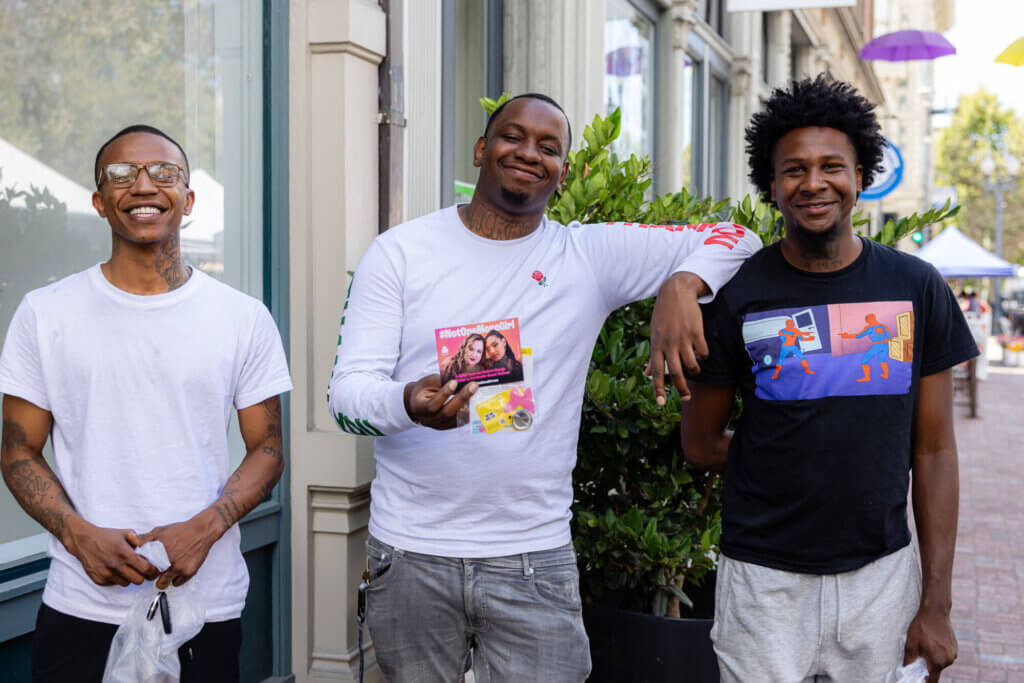
She also elevates that Black cultural workers shouldn’t need to jump through hoops to secure support, particularly in a region as economically abundant as the Bay. Persistent obstacles to the access of resources shouldn’t be such a challenge in this context. “When Black people state, ‘These are our values and this is what we need to make things work in alignment with our values,’ that should be enough. This is important because we’re carrying thousands of years of tradition and we need support to hold that down. We need spaces for artists and cultural workers to comfortably make their crafts because they participate in the economic engine. We need spaces to educate. When we say we need these things, there’s all kinds of barriers and hoops to jump through. But there are non-Black groups who can organize and gain traction very quickly to secure millions and millions of dollars to launch a regional cultural center. And it’s like, well damn, what about all these Black-led groups that are trying to do the same thing?”
Part of the conundrum is the relationship between financial capital and the legacy of slavery and ongoing extraction of Black art and communities to generate capital. “There’s a tension around having to be reliant on those same dollars,” Anyka laments, “and the history and legacy attached to that capital in order to get in position and achieve these goals. When you have to work three or four other jobs on top of it all, it’s no wonder why there aren’t as many success stories—because we are battling an entrenched legacy of anti-Blackness. And part of the challenge is to strike a balance between how deeply we partner with these systems, and how we allocate our energy and time so we can continue to partner more deeply with one another in a more liberated expression.” That liberated expression includes keeping dollars in the Black creative community so that mutual aid can be activated without expectations of support from or accountability to the government and existing systems of power.
Value and Impact of Working With CAST
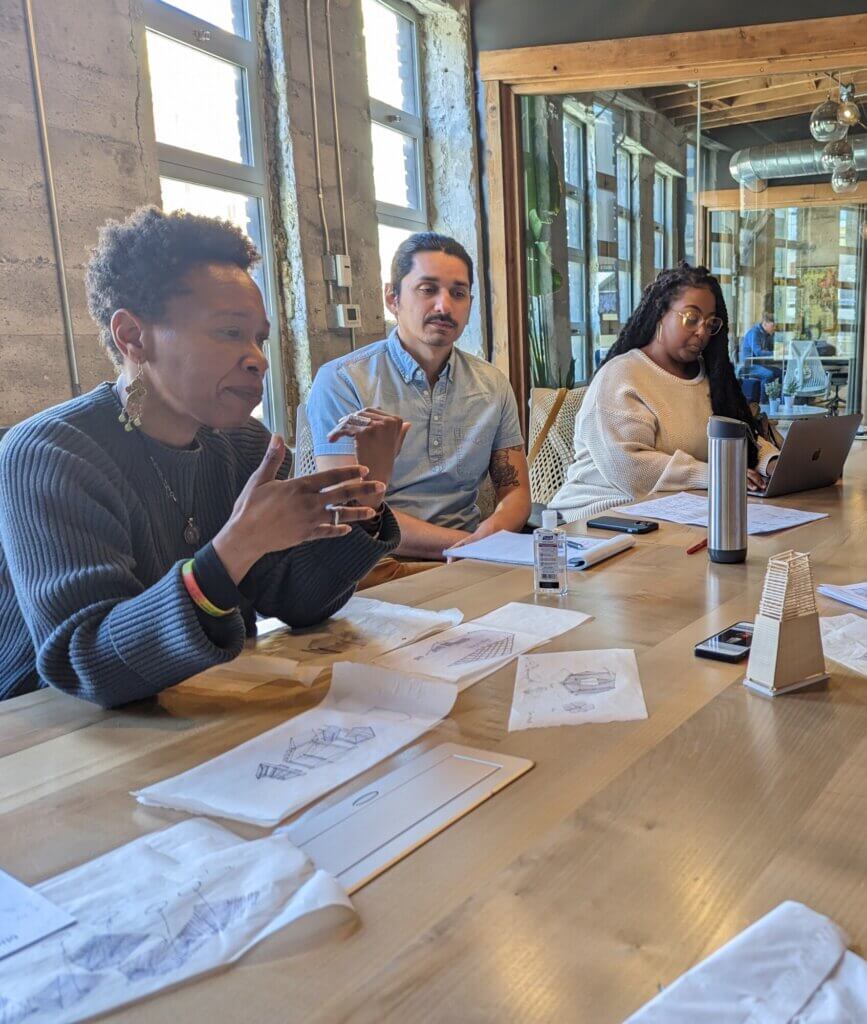
Anyka cites her work in partnership with CAST as reflective of the Betti Ono mission—work that has a shareable vision and strong potential for deep collaboration. “It’s for Betti Ono,” she says, “but it’s also for the other community-based partners that we want to engage. It’s something that can meet our mission, but part of that mission is how deeply we’re collaborating in partnership with others.”
This alignment is a strong foundation for impactful work, and the partnership also promises to create more ease in the work of Betti Ono and other organizations alike. “As artists and especially Black and Black woman artists, we’re constantly fighting to defend that our work is actually work and deserves and needs support,” Anyka says.
“The potential influence of working with CAST is to open up doors that we can walk through and be representative in our own voice, standing in our own power. My expectation is that this partnership lends itself to a permanent cultural home.”
She points in particular to her collaboration with CAST’s Director of Real Estate Development and Partnerships, Carolyn Choy, as enabling her work to be carried out effectively and with integrity. “When I’ve been clear and explicit in our conversations about what I’m here for and what I’m not here for,” she says, “Carolyn in particular has been able to hear and accept my boundaries and priorities, and that’s enabled more mutuality in how we approach our work.”
Challenges of Partnering With CAST
The work of tackling and remedying longstanding and embedded systemic issues to spur social transformation is rife with challenges; working in partnership and collaboration across difference comes with challenges as well. One dynamic Anyka elevates having encountered in our work together is a certain opacity relative to decision making. She explains, “It’s just been challenging to understand how they were making decisions about what groups to partner with and why. The money and politics of the business model are not always transparent.”
Our Learning
Anyka’s reflection has helped us to see the urgency of clarity in our decision making processes, particularly relative to our work with community partners. Her clear articulation of this challenge has confirmed and underscored for us the importance of developing more transparent and explicit selection criteria for programming and being clear about our real estate criteria. For example, we can and should articulate more clearly that we expect community partners to come to us real estate-ready—with equity to contribute, a sustainable business model already in action, and demonstrated commitment to community. We’re currently shifting from a more organic on-ramp to partnership into a more clearly-defined intake process for community engagement. Anyone interested in CAST’s services will now move through each step of the recently updated intake process, which includes standards for how we can prioritize inclusion and clear communication of how partners can access our staff and their expertise. We hope this new process will better inform our community of the services we offer (and what we don’t offer); who we serve and prioritize; how we work; and how they might come to work with us. In the absence of this type of transparency, we unintentionally reinforce and reproduce systemic inequities around access and opportunity.
Looking Ahead: What It Takes to Sustain This Work
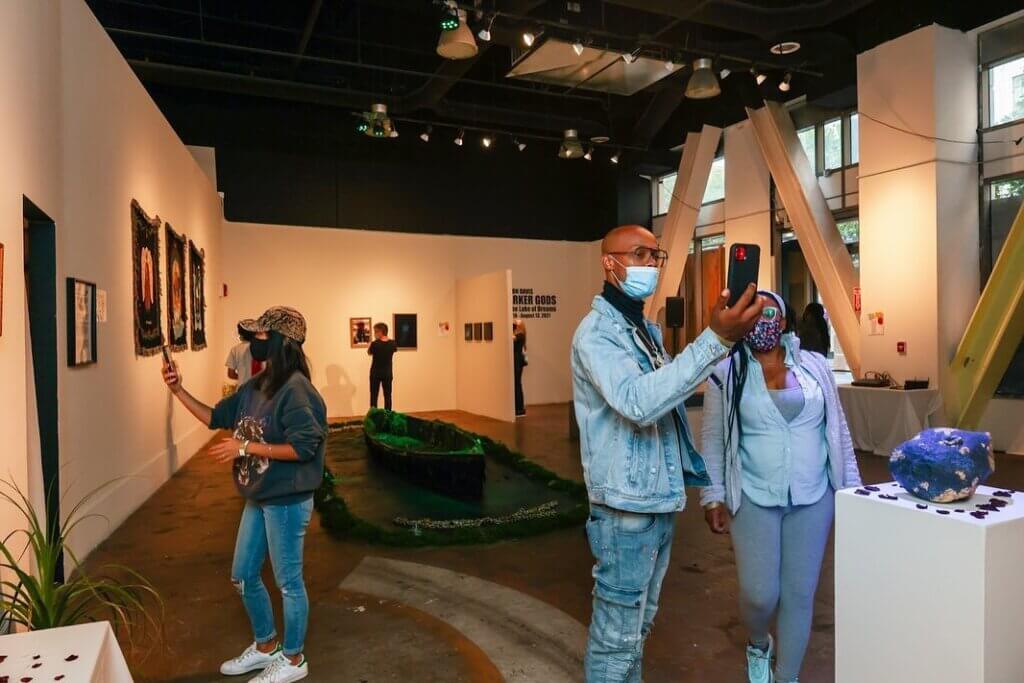
“Something I learned from running a Black cultural space for 12 years is that it’s not gonna work if you only focus on the business,” Anyka says. “You have to support the entire body, so to speak.” She lifts up the ways that a cultural space—and particularly when it’s a highly visible Black community space—becomes far more than a storefront, given the types of needs that are present in the community.
“It’s one thing to put up art on the walls,” she says. “It’s another thing to respond to a sister or brother who just came out of the system and needs a job for a week to secure the keys to their SRO, or who needs to shelter in our space to avoid a violent situation.”
“There are things happening with our people,” she adds. “A cultural response can help, but that’s not enough. We need it to be a more distributed effort, not just one group working on it, but multiple groups. We have to be connected to other areas of cooperativism and see the linkages to address these intersectional and entrenched challenges—I see this happening with Black Cultural Zone’s work, too.” She elevates how Black Cultural Zone embodies the concept of cultural reforestation as well as her own commitment to it. “This is the idea of seeding and helping to strengthen the ecosystem of Black spaces and businesses,” she explains.
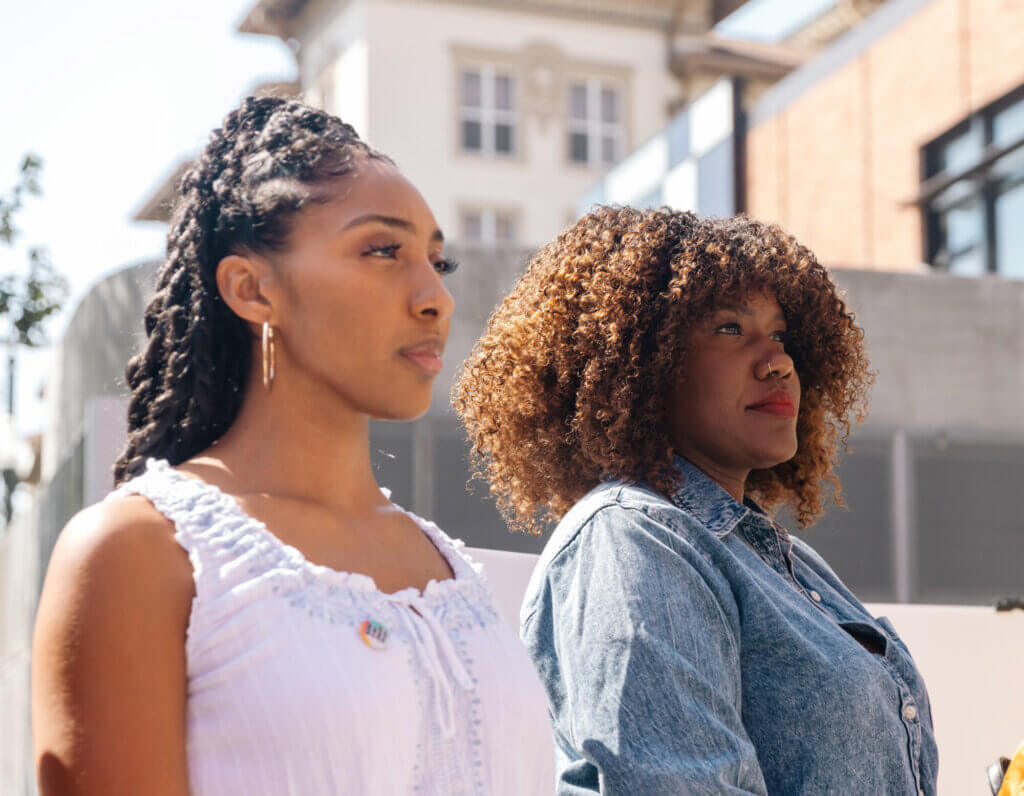
Anyka also thinks about how to support the new generation of Black cultural workers who are coming up behind her. “What can we impart to them?,” she asks, considering how those who’ve navigated the barriers can share the learnings to create more clarity and ease for the next people stepping into cultural leadership.
“None of this is new,” she points out. “But we need a layman’s language and a core way to galvanize power around the mission of securing permanent spaces for Black business owners, Black community members, and Black culture. Advocacy has to continue to be strengthened because we’re going to have to keep fighting. Our cultural work is deeply rooted in our ability to live with dignity in our city.”
CAST is honored and humbled to be a part of Anyka and the Betti Ono commitment to creating the conditions for more dignity throughout Oakland’s Black arts ecosystem. Expanding upon that commitment to alliance building, racial justice, and cultural strategy through arts and culture program engagements, the latest Betti Ono initiative, Black Tulip, is the perfect example of using the value of art as a form and function of activism, self-determination, community transformation, and cultural resilience.
Black Tulip
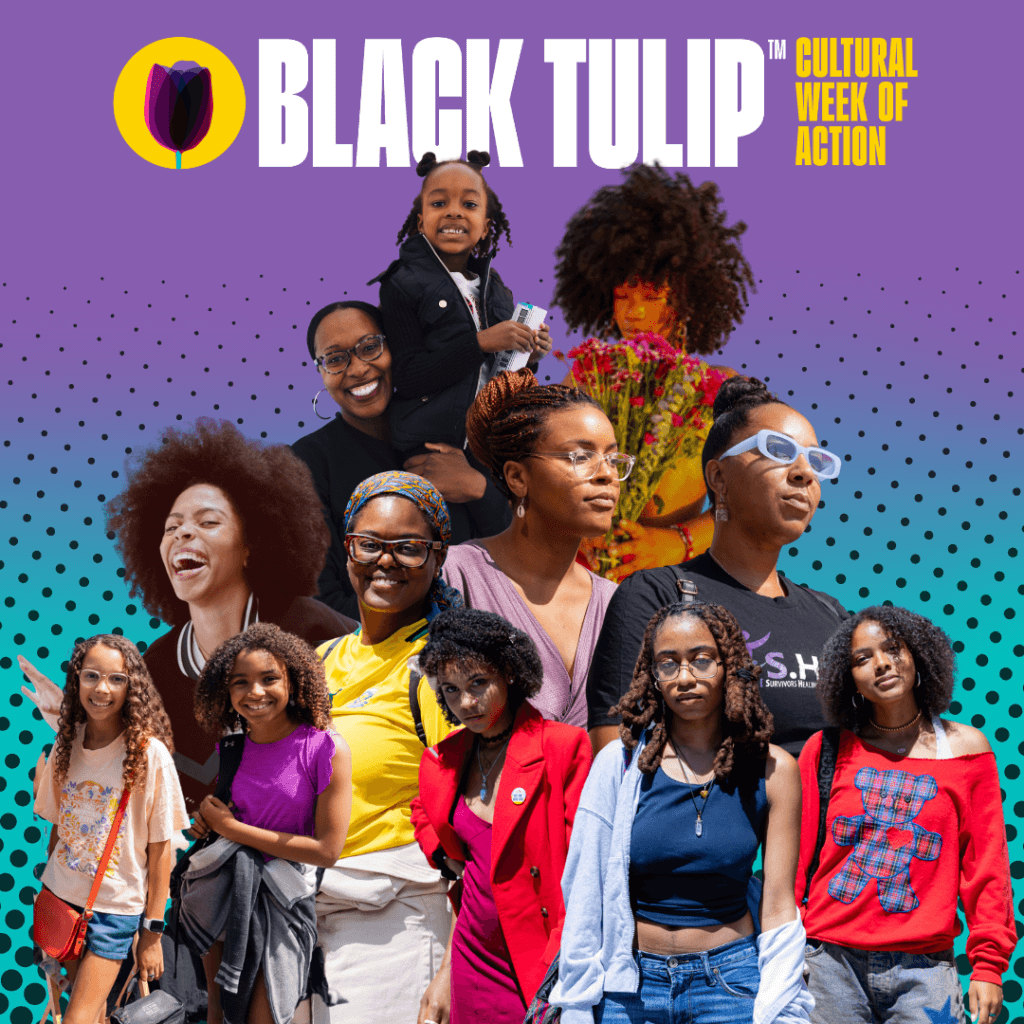
The Betti Ono Foundation, in partnership with the Black Arts Movement Business District, Community Development Corporation (BAMBD, CDC), officially announced the inaugural launch of BLACK TULIP™ Cultural Week of Action to radically imagine care, safety and protection for the vibrant identities of Black women and girls.
BLACK PEOPLE (mainly women and girls) accounted for 50% of the missing person cases in Oakland last year while only making up 22% of the city’s population. Black women, girls and gender expansive folks are GOING MISSING, BEING VIOLENTLY HARMED, MURDERED and TRAFFICKED everyday throughout the Bay Area! With artists being critical pillars that shift cultural policy, BLACK TULIP™️ IS DEMANDING a Protect Black Women & Girls Act at the state level in California through art-centered advocacy.
During Domestic Violence Awareness Month, BLACK TULIP™ is hosting 3 days of visual, performing and healing arts to amplify the urgency of a California Protect Black Women and Girls Act:
- October 3rd – BLACK TULIP™️ “Write-In” curated by Oakland’s 1st Poet Laureate: Dr. Ayodele Nzinga at Oakland’s BAM House
- October 4th – Black Tulip™️ in partnership with Oakland First Friday “Health is Wealth” will activate a cultural booth at the corner of Telegraph and 23rd Street.
- October 5th – The inaugural BLACK TULIP™️ public day of Art, Action & Advocacy: With over 50 cultural collaborators, including incredible Oakland artists 3LISE and JADA IMANI, global iconic singer and activist DAWN RICHARD and TOMISHA WILSON (sister of the late Nia Wilson) – the Lake Merritt Amphitheater will be activated with live music, performing arts, siren sound healing, community altar making and series of pledges.
As 1 of 14 anchor projects selected as a collaborator and grant recipient for the 2024 National Cultural Week of Action on Race and Democracy, BLACK TULIP™ is taking an art-centered collaborative approach to community organizing as an effort to educate, advocate and pledge against social and systemic racialized gender-based violence against Black women.
Read the series
This six-part blog series was developed in partnership between CAST and PJS Consultants, with interviews and content drafted by artist/writer dana e. fitchett, and editing by CAST.
- Community of Practice
Recognize the Present to Repair the Future
An introduction to three Oakland partnership stories.
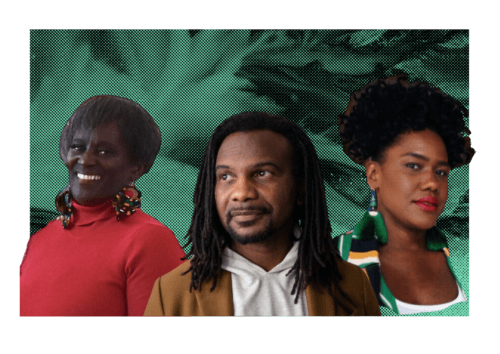
- Community of Practice
Oakstop pt. 1: Stabilizing Space and Place
The story of Oakstop and how they’re shifting the narrative for community work.
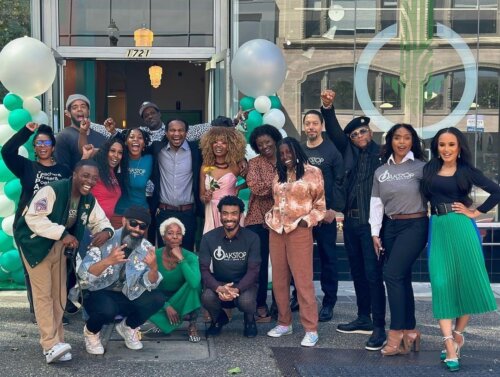
- Community of Practice
Oakstop pt. 2: Building Legacy and Creative Ecosystems
CAST and Oakstop reimagining community spaces through creative ownership.
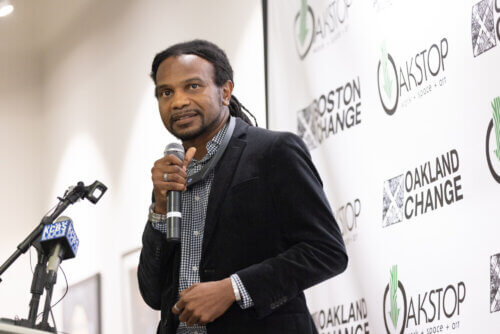
- Community of Practice
Black Cultural Zone pt. 1: A Demonstration of the Power of Hope
The story of Black Cultural Zone and Liberation Park.
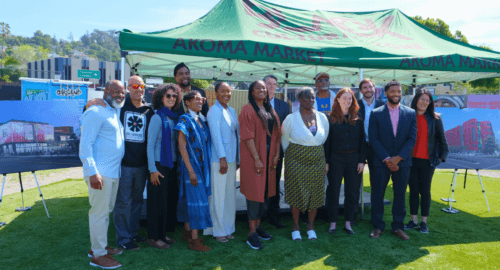
- Community of Practice
Black Cultural Zone pt. 2: Reparations as Requisite for Reimagining
Working with BCZ and learning to take more risks.
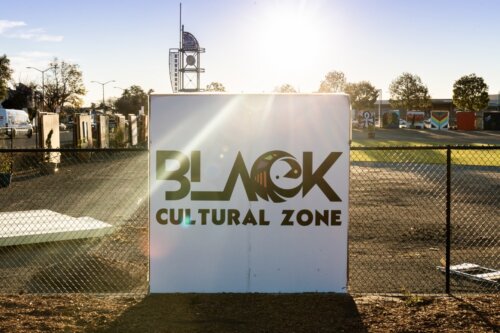
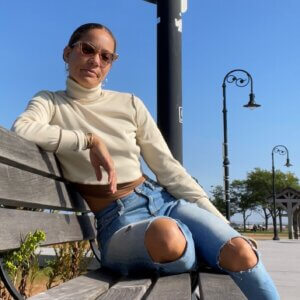
About dana e. fitchett
dana e. fitchett is a trans-disciplinary artist whose practices are grounded in listening and cultivating new languages in service of alignment, integrity, and freedom. Within and outside of PJS Consultants, dana writes and edits for individuals and community organizations working for transformation and justice by way of truth and reconciliation. As Founder and Creative Director of dance collective, Movement for Liberation; teacher of her original Groovement classes; and in her visual art and transcription processes, dana works in and in conversation with the expressive legacy of the African diaspora. Also a novice music producer and practiced plant-based foodmaker, she holds a certificate in nonprofit management and leadership; a bachelor’s degree in urban studies; and a master’s of fine art in interdisciplinary art, and spends most of her time between Boston, Brooklyn, and Oakland.




